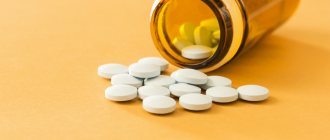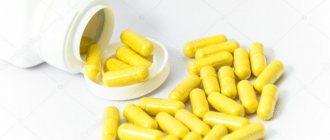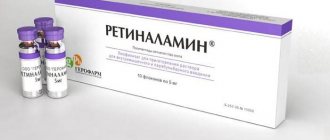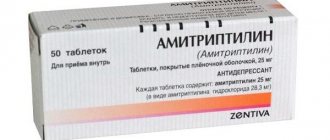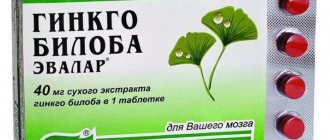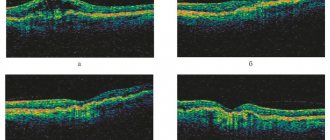Modern medicine has come up with a lot to get rid of cirrhotic liver damage and hepatitis C. Most new drugs are characterized by effectiveness and selectivity of action.
As a rule, medications are used as part of a complex treatment, which sometimes takes six months to a year.
Some patients in Russia opt for Bicyclol .
After carefully studying the instructions for use, Bicyclol analogs and the price of the drug, and reading a bunch of positive reviews on the Internet, patients decide to take this particular medicine.
Release form
Bicyclol is sold in tablet form. 2 blister packs are placed in a cardboard package along with instructions for use; each blister contains 9 Bicyclol tablets.
Pharmacological characteristics
The manufacturer of Bicyclol says that the medicine has undergone more than a dozen tests. Qualified doctors used the medication as a treatment for hepatitis C. Treatment, on average, lasted for 3 months. At the end of this time, liver transaminase concentrations before and after therapy were compared.
The patients themselves stated that their condition had improved: their appetite, performance and mood had increased.
Doctors' opinions indicate that Bicyclol is well tolerated. The medicine is easily absorbed and spreads through the blood throughout the body, but even long-term use does not lead to deposition in hepatocytes. Undergoing biological transformation, Bicyclol is excreted from the body in urine and feces.
Taking Bicyclol causes a significant decrease in the content of AST and ALT. Bicyclol has excellent antioxidant and anti-inflammatory properties.
The Internet and instructions for use contain information that the unique active component of Bicyclol is almost identical to bifendate. The substance has a positive effect on the body:
- Reduces the synthesis of cytokines responsible for the risk of tumor development.
- Restores damaged hepatocytes.
- Eliminates immunological imbalance.
- Increases the necessary antioxidant reactions, inhibits negative oxidative processes.
- Stops the death of hepatocytes.
Read also: Diet 5: menu for the week with recipes on how to cook
However, not all experts are confident in the effectiveness of Bicyclol. This is explained by the lack of detailed instructions for the use of Bicyclol in popular pharmacological publications.
There is information about the antiviral effect of the drug. For example, Bicyclol significantly reduces the content of hepatitis B viral antigens, reducing the doubling of the pathogen's DNA. But full-fledged studies of this phenomenon have not been carried out.
However, Bicyclol eliminates pathological disorders in the liver and restores the structure of the organ.
Pharmacological properties of the drug Bicyclol
A drug used for liver diseases. The chemical structure is similar to bifendate. The use of Bicyclol helps reduce the increased activity of transaminases in hepatitis, liver damage caused by chloroform, D-galactosamine and paracetamol, and normalize disorders of the structure of the liver tissue of varying degrees of severity. Bicyclol inhibits the production of tumor necrosis factor (TNF-α) by active neutrophils, Kupffer cells and macrophages, and also promotes the removal of free radicals from cells. Thus, Bicyclol inhibits oxidative stress caused by impaired mitochondrial function, which prevents necrosis and apoptosis of hepatocytes. Bicyclol also inhibits hepatocyte apoptosis stimulated by TNF-α and cytotoxic T cells, leading to the restoration of damage to the nucleus and DNA of hepatocytes. Bicyclol also significantly inhibits the expression of HBsAg and HBeAg and significantly reduces the content of hepatitis B virus DNA and hepatitis C virus RNA in the blood in chronic viral hepatitis B and C. The half-life in the alpha phase is 0.84 hours, in the final phase - 6.26 h, the time to reach the maximum concentration in the blood plasma is 1.8 hours, the maximum concentration is 50 ng/ml. The maximum concentration and AUC are directly dependent on the dose of the drug, however, other pharmacokinetic parameters do not change significantly depending on the dose. The drug does not accumulate in the body after repeated administration in normal doses. The maximum serum concentration may increase when taking the drug after meals. Bicyclol metabolism occurs in the liver with the participation of cytochrome P450, with the formation of the main metabolites - 4OH-bicyclol and 4OH-bicyclol. The drug is detected in the blood unchanged 15 minutes after oral administration. The maximum concentration of bicyclol in the liver is achieved 4 hours after taking the drug. The degree of binding to blood plasma proteins reaches 78%. Less than 30% of bicyclol is excreted from the body in feces within 24 hours. About 1.3% of the drug is excreted in the urine, 0.03% in bile.
Indications for use
Bicyclol has pronounced hepatoprotective properties. Doctors recommend Bicyclol in the following cases:
- When previously prescribed treatment turned out to be ineffective.
- Non-alcoholic steatohepatitis.
- Cirrhotic liver damage, severe fatty liver degeneration.
- Toxic hepatitis caused by exposure to ethyl alcohol, the influence of narcotic and other medications.
- Chronic course of hepatitis C, B, accompanied by an increase in the activity of liver transaminases.
Special instructions for the use of the drug Bicyclol
During the treatment period, the clinical picture and functional state of the liver should be monitored. Bicyclol should be prescribed with caution to patients with decompensated liver function (hypoalbuminemia, liver cirrhosis, esophageal varices, hepatic encephalopathy, severe forms of hepatitis). Should be used with caution in case of autoimmune hepatitis. Use with caution when driving vehicles and working with potentially dangerous mechanisms.
How to drink Bicyclol
- Bicyclol is taken orally after meals, 25-50 mg three times a day.
- The duration of therapy is about 3 months. Sometimes the course of Bicyclol in the amount of 25 mg three times a day is extended to six months.
While taking the medicine, you should repeatedly determine the functional state of the liver.
In patients suffering from diseases of the digestive system (cholecystitis, pancreatitis), when taking Bicyclol, a noticeable increase in ALT, alkaline phosphatase and gamma-glutamyl transpeptidase may develop. Due to this circumstance, therapy is carried out under additional monitoring of the condition of the damaged organs.
Use of the drug Bicyclol
Adults and children aged 12 years and older are prescribed 25 mg orally 3 times a day. In some cases, the dose can be increased to 50 mg 3 times a day: in the treatment of chronic hepatitis C; with an uncontrolled increase in transaminase levels or the absence of significant positive dynamics in the levels of ALT and AST during 1–2 months of taking Bicyclol at a dose of 25 mg 3 times a day; for liver cirrhosis, fatty liver, alcoholic hepatitis; while taking nucleoside reverse transcriptase inhibitors (lamivudine). It is advisable to take Bicyclol 2 hours after meals. The minimum duration of treatment is 6 months. If necessary, the course of treatment can be repeated after 1 month.
Side effects of Bicyclol
There are few negative reviews about taking the drug. Most of the side effects of Bicyclol are caused by an overdose:
- Dyspeptic disorders.
- Headaches, sleep disturbances, dizziness, fainting.
- Increased concentrations of AST, ALT, alkaline phosphatase, glucose and creatinine.
- Allergic reactions: skin itching, urticaria.
The development of at least one side effect becomes an indication to consult a doctor. The dosage is adjusted or the medicine is discontinued.
Bicyclol, 25 mg, tablets, 18 pcs.
The active substance of the drug Bicyclol is a lignan in its chemical structure.
The use of the drug Bicyclol helps to reduce the increased activity of liver transaminases in hepatitis of various etiologies. The protective effect of the drug Bicyclol has been proven in in vitro and in vivo models simulating various farms of liver damage: carbon tetrachloride (CC l 4) - damage to biomembranes, necrosis, liver fibrosis, acetaminophen (AP) - depletion of glutathione in hepatocytes, D-galactosamine - damage /(NC of the hepatocyte nucleus, BCG vaccine and coicavalin A (CopA) - immune damage. Under the influence of Bicyclol, pathomorphological disorders of the structure of the liver tissue are restored to varying degrees. Bicyclol inhibits the production of tumor necrosis factor (TNF-a) by active neutrophils, Kupffer cells and macrophages , and also helps to reduce the intensity of free radical processes in cells. Bicyclol inhibits oxidative activity caused by impaired mitochondrial function, which prevents necrosis and apoptosis of hepatocytes. Bicyclol also inhibits the apoptosis of hepatocytes stimulated by TNF-x and cytotoxic T cells, leading to the restoration of nuclear damage and hepatocyte DNA.
In vivo studies in a model of liver damage with AR have demonstrated that pre-administration of bicyclol significantly reduces the degree of damage to hepatocytes, which is expressed in a decrease in the activity of alanine aminotransferase (ALT) and aspartate aminotransferase (AST), markers of hepatocyte necrosis, a decrease in the release of cytochrome C and apoptosis. inducing factors from mitochondria, as well as preventing DNA defragmentation.
In vitro studies also found that Bicyclol is able to suppress the excretion of HBeAg, H BsAg and DNA replication of the hepatitis B virus.
The results of clinical studies of the drug Bicyclol in patients with chronic viral hepatitis C of moderate activity demonstrated that when it is prescribed at a dose of 150 mg per day for 12 weeks, there is a statistically significant decrease in the biochemical indicators of the inflammatory process in the liver (transaminase activity (ALT, AST), total, direct and indirect bilirubin), as well as reducing the manifestations of astheno-vegetative syndrome and improving the quality of life of patients. The data obtained indicate the presence of an anti-inflammatory hepagoprotective effect in the drug Bicyclol when used as monotherapy in patients with chronic viral hepatitis C.
The drug Bicyclol, when prescribed at a dose of 150 mg per day for 12 weeks, is characterized by a favorable safety profile and good tolerability.
Bicyclol® (BICYCLOL®)
The active substance of the drug Bicyclol® is a lignan in its chemical structure.
The use of the drug Bicyclol® helps to reduce the increased activity of liver transaminases in hepatitis of various etiologies.
The protective effect of Bicyclol® has been proven in in vitro
and
in vivo
, simulating various farms of liver damage: carbon tetrachloride (CCl4) - damage to biomembranes, necrosis, liver fibrosis, acetaminophen (AP) - glutathione depletion in hepatocytes, D-galactosamine - DNA damage to the hepatocyte nucleus, BCG vaccine and concavalin A (ConA ) - immune damage. Under the influence of Bicyclol®, pathomorphological disorders of the structure of the liver tissue are restored to varying degrees. Bicyclol® inhibits the production of tumor necrosis factor (TNF-α) by active neutrophils, Kupffer cells and macrophages, and also helps to reduce the intensity of free radical processes in cells. Bicyclol® inhibits oxidative activity caused by impaired mitochondrial function, which prevents necrosis and apoptosis of hepatocytes. Bicyclol® also inhibits hepatocyte apoptosis stimulated by TNF-α and cytotoxic T cells, leading to the restoration of damage to the nucleus and DNA of hepatocytes.
In in vivo
in a model of AR liver damage, it was demonstrated that the preliminary administration of bicyclol significantly reduces the degree of damage to hepatocytes, which is expressed in a decrease in the activity of alanine aminotransferase (ALT) and aspartate aminotransferase (AST) - markers of hepatocyte necrosis, in a decrease in the release of cytochrome C and apoptosis-inducing factors from mitochondria, as well as preventing DNA defragmentation.
in vitro studies
It was also found that Bicyclol® is able to suppress the excretion of HBeAg, НBsAg and DNA replication of the hepatitis B virus.
The results of clinical studies of the drug Bicyclol® in patients with chronic viral hepatitis C of moderate activity demonstrated that when it is prescribed at a dose of 150 mg per day for 12 weeks, there is a statistically significant decrease in the biochemical parameters of the inflammatory process in the liver (transaminase activity (ALT, AST ), total, direct and indirect bilirubin), as well as reducing the manifestations of astheno-vegetative syndrome and improving the quality of life of patients.
The data obtained indicate the presence of an anti-inflammatory hepatoprotective effect in the drug Bicyclol® when used as monotherapy in patients with chronic viral hepatitis C. The drug Bicyclol® when prescribed at a dose of 150 mg per day for 12 weeks is characterized by a favorable safety profile and good tolerability .
